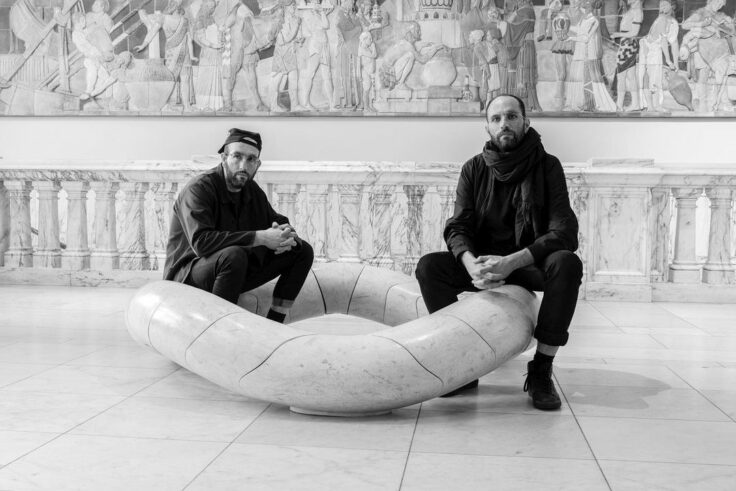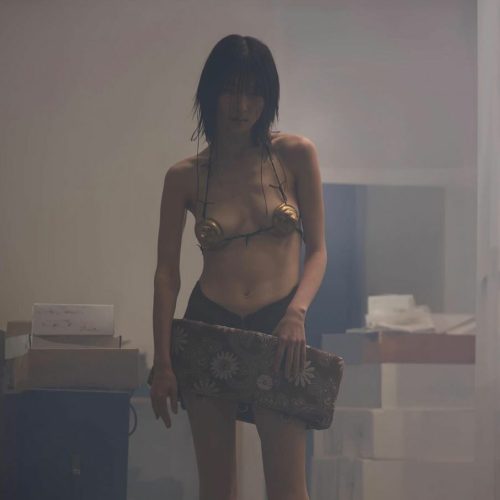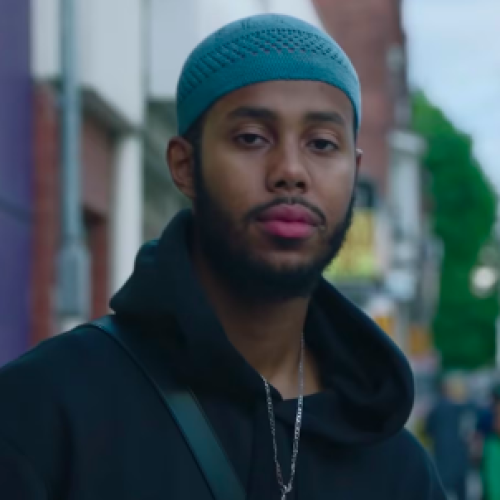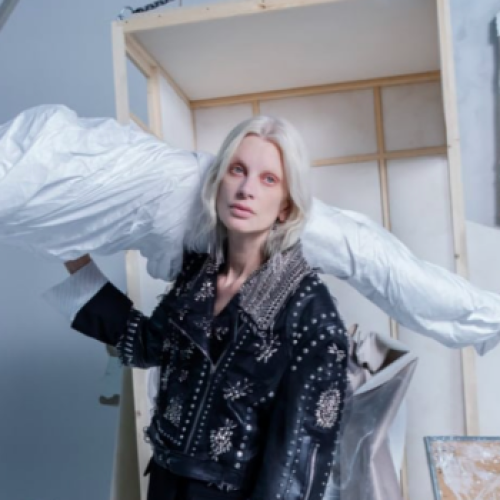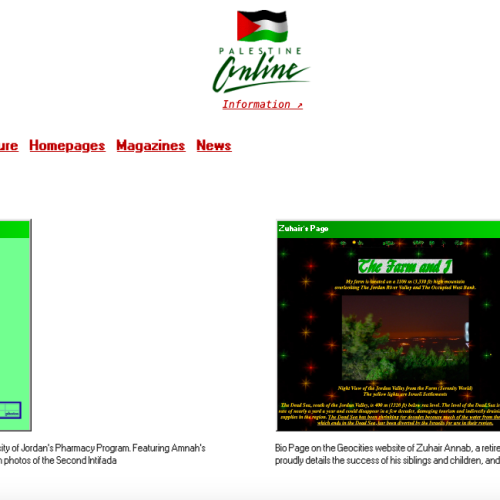Today and always in Palestinian territories, the sole act of speaking up, raising awareness, and challenging the ongoing status quo is anything but a choice, but instead, a vital duty.
Such acts of resistance, which can be expressed in a myriad of ways, are pivotal in preserving the history of the Palestinian people, documenting the iniquity they face, and protecting their centuries-old traditions.
A standout initiative, Radio alHara (“the neighborhood”), has become the resonant voice of a generation yearning for change and justice through culture and art. Standing as one of the only hubs of its kind in Palestine, Radio alHara’s founders which include Bethlehem-based architect Elias Anastas and his brother Youssef, as well as close friends Yazan Khalili, Saeed Jaber, Ibrahim Owais, and Mothanna Hussein use culture as the main driving force behind change by nurturing and uplifting the voices of change-makers, artists, and activists.
Initiated during the COVID-19 lockdowns in March 2020, this digital FM station gained a cult following and global recognition. Not just for its carefully curated music programming, but for the deep-seated values it proudly espouses.
As Anastas describes, this “network of solidarity” extends support globally to those facing oppression. The submission-based media outlet has previously supported post-explosion Lebanon in 2020 and the women of Iran following Mahsa Amini’s tragic death in police custody in September 2022.
“The way we need to resist today is through solidarity, as it is a primary tool that allows people to get cultured about other forms of injustices. And when they are brought together, when they’re opposed, or speaking to each other, they reinforce communities and reinforce resistance,” Anastas told MILLE.
“At first, it was a music radio, but then it grew into a structure that is very flexible, which allowed us to intervene whenever it’s possible, and respond to different conditions and situations at any time and wherever needed,” he added.
Addressing the debate around art’s place during wartime, after all, one could argue that art should be at the bottom of our priority list in times like these, as it could be seen as insensitive, or worse, as a frivolous luxury that diverts resources and attention away from pressing concerns, Anastas replied by opening up on some of the complexities and nuances of this subject. “When the war started 10 days ago, we weren’t in the mood to listen to any music,” the Columbia University Architectural Design professor confessed. “So we decided to shut the radio down for two or three days before taking a step back and realizing that we have this virtual space, so why don’t we just be louder by using it?” he continued explaining.
Voir cette publication sur Instagram
Une publication partagée par Radio Alhara راديو الحارة (@radioalhara)
“It started with one of our friends launching a show called ‘Learning Palestine’ which was a compilation of sounds that would give anyone a deeper understanding of the history of Palestine, and to understand our struggle, and its deep roots” the 39-year-old revealed.
“We’re shifting things on a daily basis. We just had this incredible suggestion from an artist based in Amman who thought of organizing gatherings in his studio, inviting people to meditate through spirituality,” he added. “The point is, it’s important to use art to speak up. But, you will always need to keep in mind that the main topic is Palestine— or whatever the other cause you’re upholding is— rather than yourself as an artist. There’s always going to be this very thin line that has to always be remembered.”
Beyond radio, the Anastas brothers also co-founded a cross-disciplinary architectural studio, dubbed Local Industries, which explores ways in which one can reimagine cities with younger generations in mind. Their recent venture, the Wonder Cabinet, is a multifaceted space in Bethlehem: “It’s essentially a conclusive space that gathers most of what we’ve been doing throughout the last years,” the entrepreneur shared. It’s a non-profit cultural institution and platform that focuses on the idea of production in a very large sense from music to art and object design. The idea is to host artists, designers, and researchers in residence, but also to be able to respond to their needs for those that would want to have a space where there’s the capability and the know-how to produce projects for them,” he added.
Voir cette publication sur Instagram
Une publication partagée par Wonder Cabinet – مجلس العجب (@wonder.cabinet)
The physical space, situated in Bethlehem, features music booths, screening spaces, production facilities for trade jobs such as carpeting and blacksmithing, as well as multi-purpose rooms. There is also a restaurant, run by visiting chefs, so that the venue can sustain itself. “So we have chefs or artists and residents that will come and spend one to two months in Bethlehem and the idea for them is to collaborate with other residents that are part of our space so they can work around other themes and disciplines like ceramics and cutlery, or work with a researcher on specific traditions that revolve around food,” he further explained.
Juggling so many diverse cultural projects brings challenges, but for Anastas, collaboration is key: “The radio has its own autonomous team, and so does the cabinet, but we roam between the different entities that we’re a part of. “In order to be able to pursue and to continue doing what we essentially do, it’s vital to have the opportunity to work in other realms and I’d say that this is really what motivates us,” he added.
Ultimately, Anastas draws strength in building communities with people who, like him, are trying to change things. “It’s personally, and collectively, more enriching to be in a position where we can spend a month intensively working on an architectural project, and then facilitate workshops for people to learn how to weld for example, and then curate lineups, or work on events happening on the internet. It’s the fact that all of these things collide, with perspectives and experiences from opposing spaces, that makes the outcome not only beautiful but unique and also relevant.”





